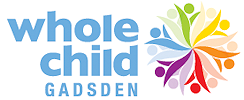Social and Emotional Development
The building blocks for successful relationships and a healthy
sense of self begins when a child is an infant.
Very early personal relationships and experiences set the stage for how a child:
- Learns to manage his or her emotions (self-regulation),
- Feels about themselves (self-confidence),
- Relates to others and the world around them (competence).
When children learn a healthy method of managing their emotions, feel positively about themselves, and are included in healthy relationships with those closest to them, they are more likely to:
- Succeed in group situations (schools, community settings, etc.),
- Concentrate and learn successfully,
- Effectively communicate their feelings,
- Continually develop self-confidence and self-esteem
A child uses his or her emotional skills to interact with others. This includes playing and developing relationships with peers, interaction with caregivers and parents, adapting to a variety of environments, and learning about the larger world.
Emotional competence is a vital aspect of a child’s social and ultimately, overall development.
We invite you to utilize the resources on this page to learn more about a child’s emotional and social development, and more importantly, to MAKE A CHILD’S FIRST YEARS COUNT.
Community-Wide Screening Days
Children with developmental delays are at high risk of lifelong disabilities which may compromise their ability to fully participate in their community and to realize their full potential. If developmental delays are identified early in a child’s life, there is a high probability that appropriate interventions can enable the child to overcome the delay completely or significantly mitigate its impact on the child’s life. Unfortunately many children are not screened early enough to detect possible delays before they progress to a much more serious and often irreversible condition.
“Nationally, about 16% to 18% of children have disabilities such as speech-language impairments, mental retardation, learning disabilities, and emotional/behavioral disturbance. Although such children are twice as likely to seek health care as children without disabilities, only 20% to 30% of these children are detected prior to school entrance. Under-enrollment rates in early intervention programs (of roughly 80%) confirm the need to improve early detection in primary care.” (Glascoe and Shapiro, 2007)
Developmental Screenings
WCL has coordinated and facilitated Developmental Screening Days for children ages 0 – 5 beginning in October 2009. Children receive hearing, vision, dental, fine motor, gross motor, and speech screenings. Children leave the Developmental Screenings with referrals to agencies that can provide those services and information for their pediatrician or family physician. This work group facilitated by WCL meets monthly and brings together over 25 partner agencies and more than 100 volunteers to help in the twice yearly screening days. To date, 752 children have been screened through this process and even more have been connected to partner agencies that can provide the needed services. An average of 60% of those screened have one or more developmental issues of concern detected. Prior to this WCL imitative, free comprehensive screenings for infants, toddlers and pre-school students have never been available to children in Leon and surrounding counties before.


